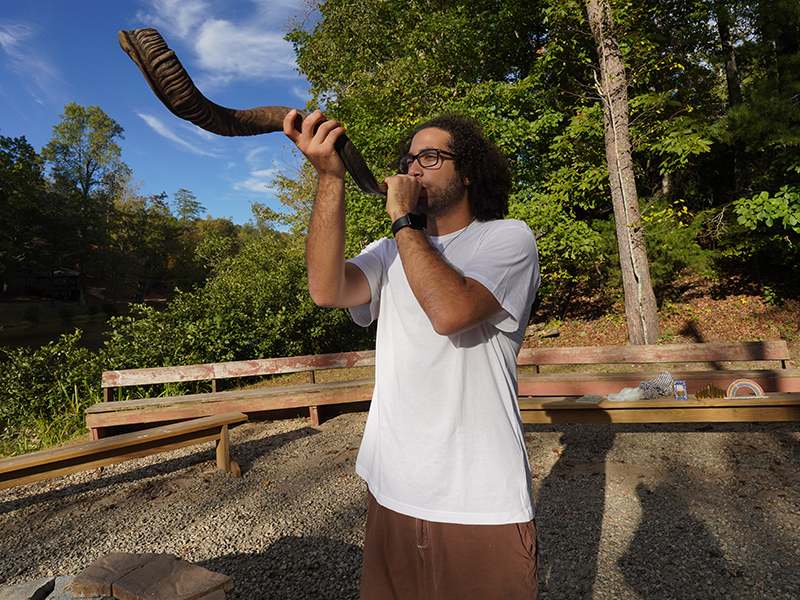In Parashat Vayishlach, Jacob receives a new name that becomes the name of the Jewish people: Israel.
This moment in Genesis 32 is essential to every generation, especially in the fraught times in which we live. Jacob faces what he believes is an existential threat: confronting his brother Esau. This moment could either heal the rifts in their family or threaten his very life. Jacob thinks first about his family and only afterward about himself. After he takes measures to protect those he loves, he undergoes an experience that defines the Jewish people.
Jacob was left alone. And a man [or rather, an angel, according to commentators] wrestled with him until the break of dawn. When he saw that he had not prevailed against him, he wrenched Jacob’s hip at its socket, so that the socket of his hip was strained as he wrestled with him. Then he said, “Let me go, for dawn is breaking.” But he answered, “I will not let you go unless you bless me.” Said the other, “What is your name?” He replied, “Jacob.” Said he, “Your name shall no longer be Jacob, but Israel, for you have striven with beings divine and human, and have prevailed.” (Genesis 32:25-29).
Rabbi David Kimchi’s (1160-1235, Provence) commentary on this episode compels us to ask: How can we respond to the fears and doubts that assail us when difficulty, darkness, and disease surround us?
God sent an angel to wrestle with Jacob to strengthen his heart so he would not fear that he could not stand up to Esau. Therefore, if the angel could not defeat him, then Esau would not be able to defeat him. They struggled until the dawn as a hint that light is coming after the darkness. Trouble is compared to night and darkness, therefore the angel came to him at night and wrestled with him until the dawn, as a hint that he will have spirit and rescue which is like light after the darkness.
R. Kimchi knew that we need signs that we can overcome the challenges we face; that the light of dawn is inevitably coming to extinguish the dark. When we face difficult situations, we must respond with strength, spirit, and faith: three elements that signify the Jewish people’s approach to life.
To be is to wrestle with our own beliefs, souls, and strengths; not to cling to unquestioned faith or fundamentalist belief. While Am Yisrael has embraced questions and struggles since its very birth, this approach can often feel tiring and trying. The question then becomes: When do we know that we have completed the struggle and are free to move beyond it?
The answer is found later on in the book of Genesis. Jacob remains in Canaan, worried that he will lose more of his children. However, the light begins to dawn when Jacob has learned that his long-lost son Joseph is in fact alive in Egypt. As he prepares to go down from Canaan to reunite with his son, the way in which the Holy One calls to him is instructive:
So Israel set out with all that was his, and he came to Beer-sheba, where he offered sacrifices to the God of his father Isaac. God called to Israel in a vision by night: “Jacob! Jacob!” He answered, “Here” (Genesis 46:1-2).
While the Torah refers to the third patriarch as Israel, the Holy One instead calls out, “Jacob! Jacob!” The constant movement back and forth between the two versions of Jacob/Israel’s name is intentional: It teaches us that wrestling with holiness is never intended to end. Sometimes we are children of Jacob: wrestlers, reachers, strugglers. Sometimes we are Israel: achievers, overcomers.
This dichotomy is – and should be – essential to the Jewish lens on life. We must always be willing to hear from other perspectives and to consider new insights. We must always embrace those who are struggling in darkness if we are experiencing light. We must always hope and work for light, even in the most challenging of times.
Explore Jewish Life and Get Inspired
Subscribe for Emails


